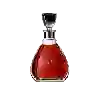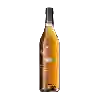
Cave TambourTradition Banyuls
This wine generally goes well with beef, mature and hard cheese or spicy food.
The Tradition Banyuls of the Cave Tambour is in the top 30 of wines of Banyuls.
Food and wine pairings with Tradition Banyuls
Pairings that work perfectly with Tradition Banyuls
Original food and wine pairings with Tradition Banyuls
The Tradition Banyuls of Cave Tambour matches generally quite well with dishes of beef, spicy food or mature and hard cheese such as recipes of beef tongue in hot pickle sauce, shrimp marinade or fondue savoyarde style.
Details and technical informations about Cave Tambour's Tradition Banyuls.
Discover the grape variety: Valdiguié
Valdiguié noir is a grape variety that originated in France (Quercy). It produces a variety of grape specially used for wine making. It is rare to find this grape to eat on our tables. This variety of grape is characterized by large bunches and large grapes. The Valdiguié noir can be found in several vineyards: South-West, Cognac, Bordeaux, Provence & Corsica, Rhone valley, Loire valley, Savoie & Bugey, Beaujolais, Armagnac.
Informations about the Cave Tambour
The Cave Tambour is one of of the world's greatest estates. It offers 16 wines for sale in the of Banyuls to come and discover on site or to buy online.
The wine region of Banyuls
Banyuls wines come from the South-eastern Part of Roussillon, in the south of France, in the lower Pyrenees, a few kilometres from the Spanish border. These naturally Sweet wines are consumed both as an aperitif and as a dessert. They come in a wide range of hues, from GoldenGreen (Banyuls Blanc) to Amber (Banyuls Ambré) to the intense garnet of the standard Banyuls Rouge. Unusually among the natural sweet wines of France, all Banyuls wines are made primarily from Grenache grapes of various colors.
The wine region of Languedoc-Roussillon
Languedoc (formerly Coteaux du Languedoc) is a key appellation used in the Languedoc-Roussillon wine region of southern France. It covers Dry table wines of all three colors (red, white and rosé) from the entire region, but leaves Sweet and Sparkling wines to other more specialized appellations. About 75% of all Languedoc wines are red, with the remaining 25% split roughly down the middle between whites and rosés. The appellation covers most of the Languedoc region and almost a third of all the vineyards in France.
The word of the wine: Texture
In tasting, the equivalent of touch. It is the set of tactile sensations perceived by the mucous membranes of the mouth: silky, velvety, sticky, fatty, astringent, pasty, etc.














